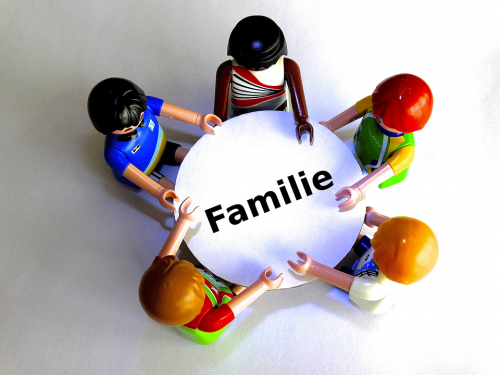
Source: pixabay.com
A person with bipolar disorder has mood swings from being depressed to becoming hyperanimated. Some persons with bipolar disorder may have mood swings that could range from mild to moderate while others instead have severe symptoms. But whether mild or severe, a sudden change in their mood and attitude can affect the atmosphere around them, causing the people who are with them to feel a bit down, too, especially if they don’t understand what the disease is about and why the person acts the way she does.
Emotional and Social Effects
Having a younger sister with a bipolar disorder is hard. It’s like facing an emotional challenge every day. And because we are going to the same school, it’s hard to avoid the stare of our schoolmates. There are those who would whisper at our backs, and there are those who would vulgarly talk about us as we passed through the hallways. Making friends is never easy because they know her mood swings. They don’t know anything about her situation, and they are afraid that she will just be violent anytime. Yes, because she did it this one time when someone tried to bully her. There are times when she will just sit alone in one corner and will not talk to anyone and then will suddenly burst into tears. They taught she’s crazy or something, and the worst part is they thought we are the same, that anytime, I will turn into something like her.

Source: pixabay.com
Our circle of friends and social activities were limited because of her condition. Can I blame her or should we blame my father’s genes for passing on this illness to her?
Family Systems Effects
When you have a sibling with bipolar disorder, not only are your parents’ time for you compromised but even money and energy. And I keep on hearing from my mom and dad, “We’ll cut the budget because your sister still needs to attend her therapy session and have to allocate some money for additional medicines.”
Sometimes I hate it when we had planned on going on a vacation and then suddenly everything will be canceled just because she doesn’t want to go or she doesn’t feel like it. Even going out with my friends is sometimes not allowed, and if ever I go out, it’s just limited time, especially on days when I have to watch over my sister because my parents can’t come home because of work.
Sometimes, I will ask my mom if we can bond together like go out shopping or just eat out. She’ll answer yes and then suddenly she would call up her sister to come with me. I can’t even talk to my parents about my problems because I know that their minds are full of my sister’s condition. But what about me? I also need them.
Why do I have to sacrifice so much just for my sister? Is she the only daughter? I also need my parents as much as she does.
Simon A. Rego, PsyD said “When what-if thoughts are swirling in your head, you can feel powerless and helpless. Taking productive action helps.”
Sometimes, I can’t help thinking about why life is so unfair. Bipolar illness is so cruel to do this to our family. Bipolar disorder takes a grip not only on my sister’s life but the wellbeing of our whole family.
There are nights when I would hear my parents arguing about her. Sometimes, I would listen to them worrying about my sister’s future. How will her situation be when they’re no longer around to guide and assist her? I understand the stress and anxiety they are experiencing, and I am trying my best not to be an additional burden to them, and I am also planning my future because I know she will be under my care when we get older.
Every family experiences a lot of trials and problems, and there will always be conflict whether a bipolar illness is present or not. Understanding and communication will always play a vital role in any relationship.
“Family members need to verbally compliment one another,” said Brent Blaisdell, PsyD.

Source: pixabay.com
Being the eldest, I feel burdened by this responsibility of becoming that glue that keeps on holding our family together. No matter how lonely I feel inside, how hurt I am every time I feel the pain my parents are going through, I have to understand them. It is never easy to accept the fact that your daughter will need intervention throughout her lifetime to survive. I may sometimes feel jealous of my sister who has all my parents’ attention, but I also pity her for her situation. It may sound selfish, but sometimes I also feel thankful that I was not the one who has bipolar illness. I may sometime hate her situation and I hate her illness, but I love my sister. Communication between us will always be open and honest because she’s the only sister I have and I am hers. And we had a pact that we will not let her bipolar illness get in our way as sisters.
Tip from Deborah Serani, PsyD: “Buy a notebook, start a blog or email yourself “to begin documenting the textures of your thoughts and feelings.”




























